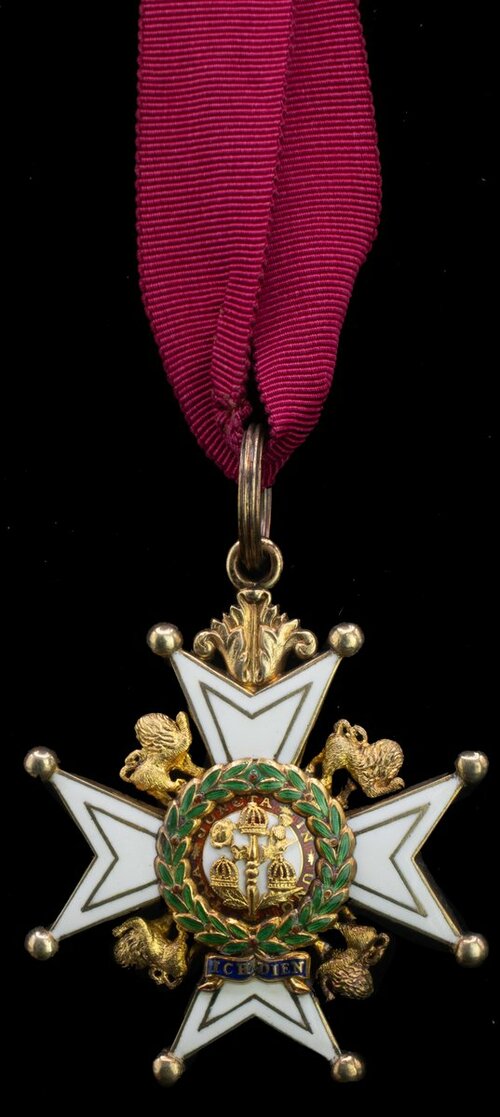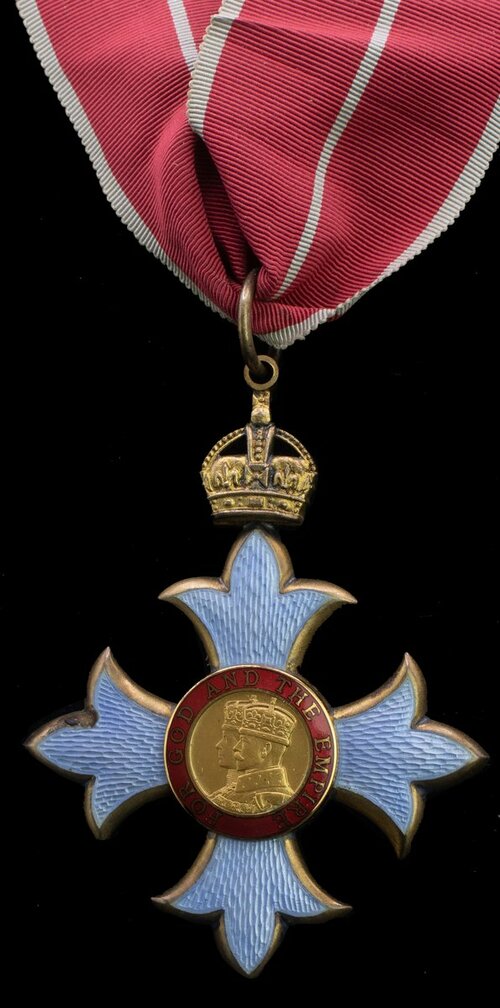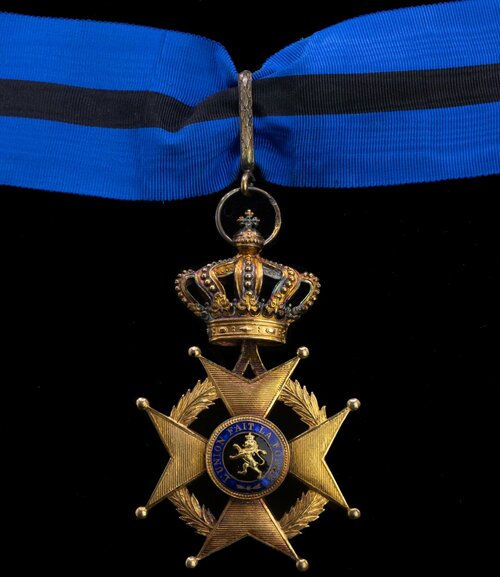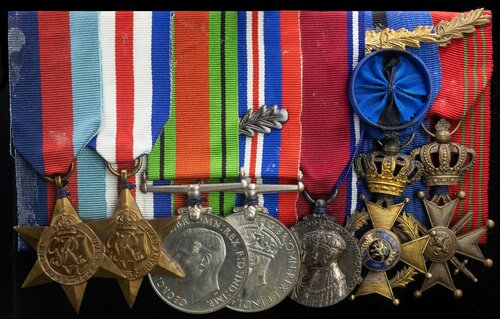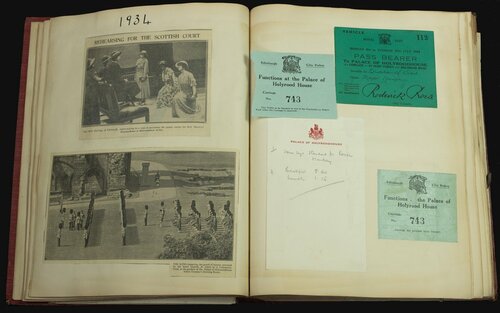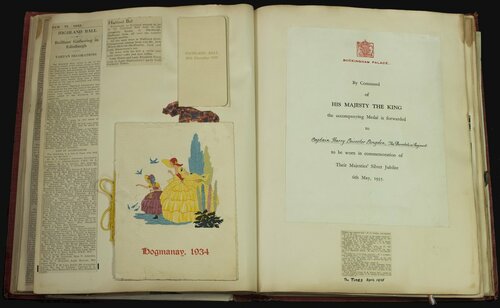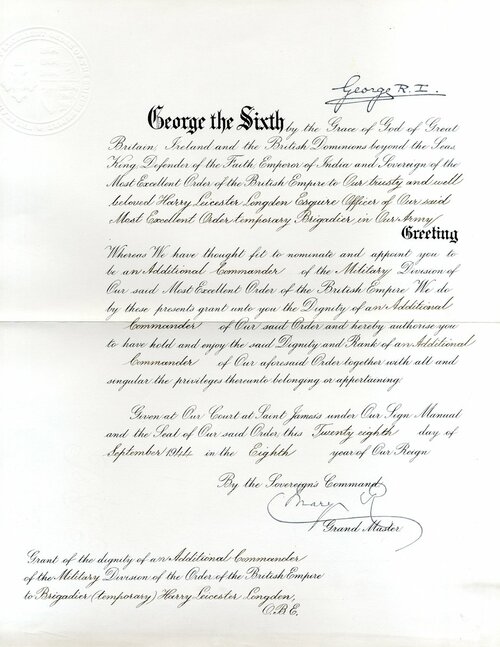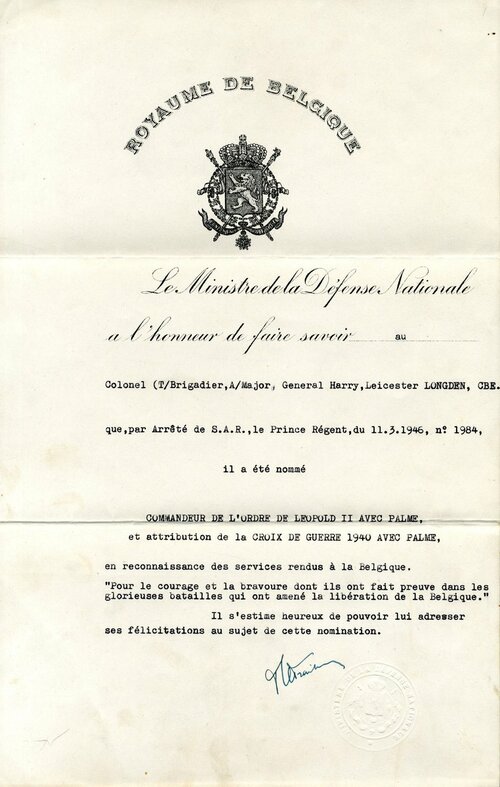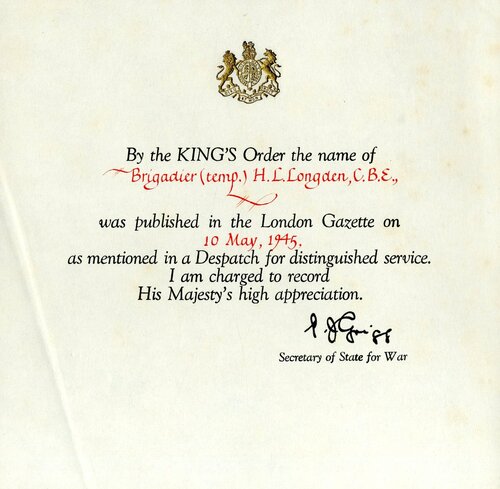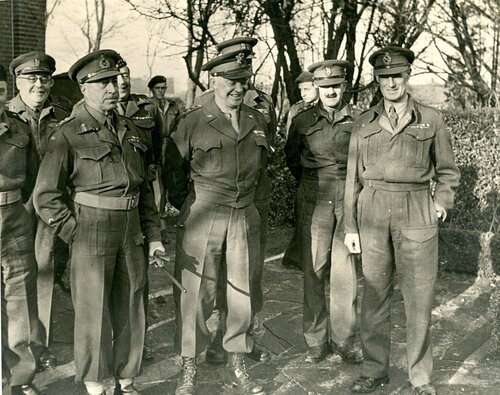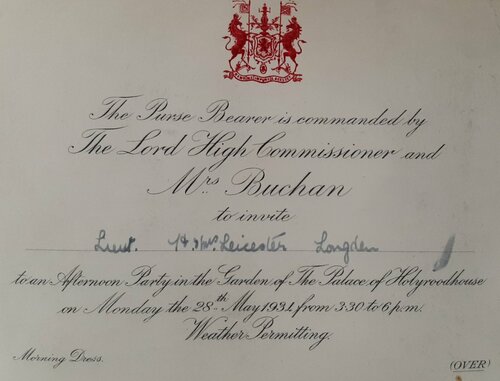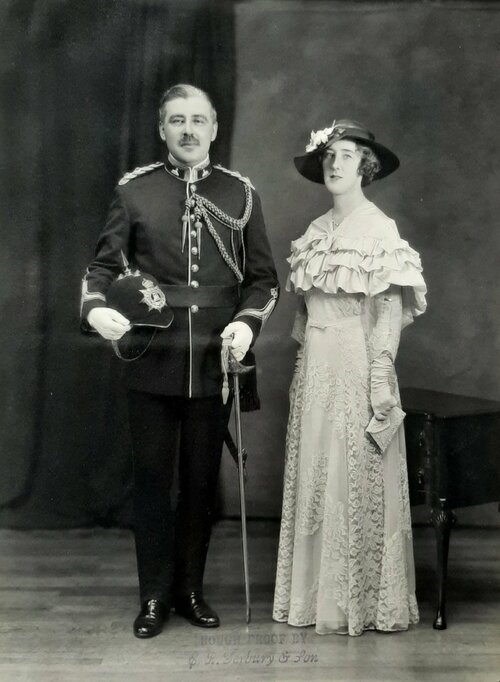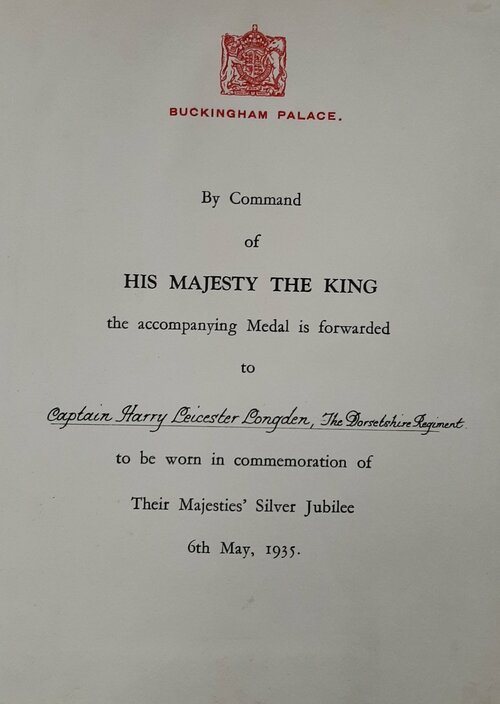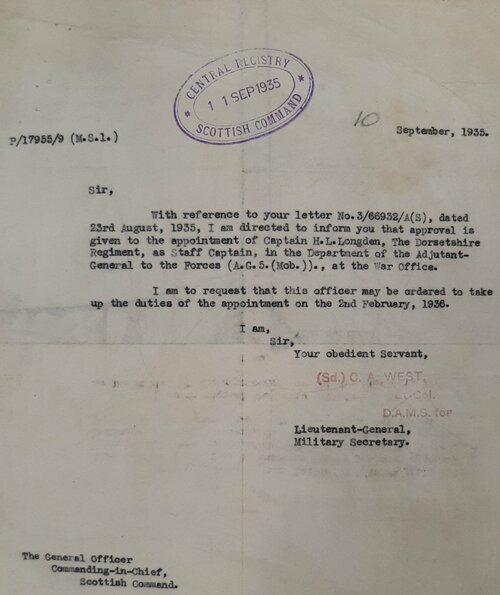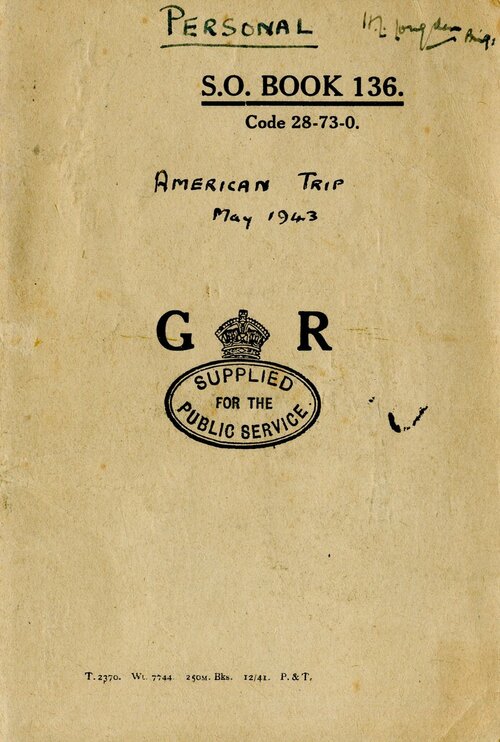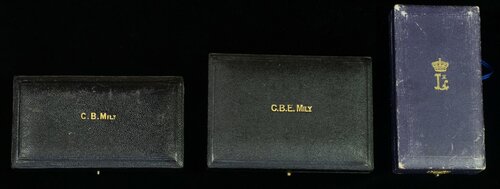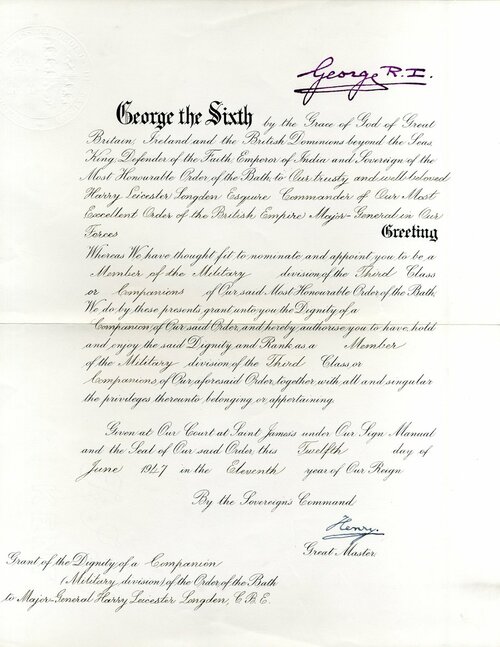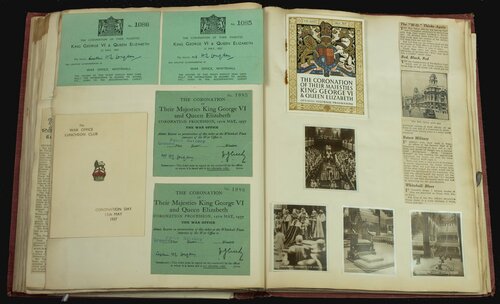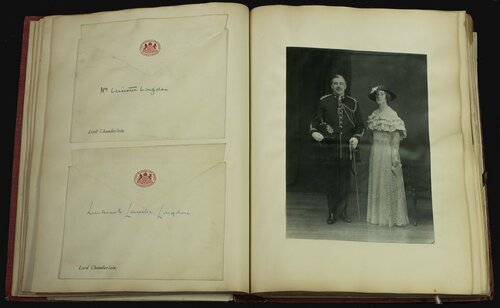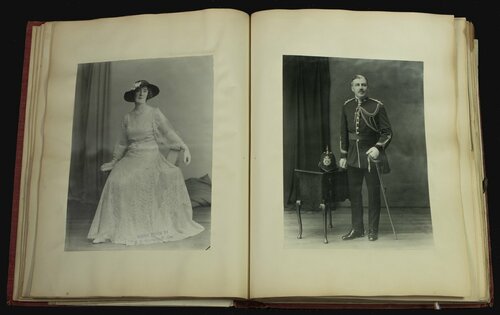Auction: 22102 - Orders, Decorations and Medals e-Auction VI - e-Auction
Lot: 476
(x) The well-documented C.B., C.B.E. group of ten awarded to Major-General H. L. Longden, Dorsetshire Regiment, who joined Churchill at the Third Washington Conference in May 1943 and later went on to chair the trails of Gestapo Officers responsible the reprisals conducted after the 'Great Escape'
The Most Honourable Order of the Bath, Military Division, Companion's (C.B.) neck Badge, 59mm, silver-gilt and enamel, in its Garrard & Co. case of issue; The Most Excellent Order of the British Empire, G.VI.R., Military Division, Commander's (C.B.E.) neck Badge, 86mm including crown suspension x 64mm, silver-gilt and enamel, with neck riband, in Garrard & Co. case of issue; 1939–1945 Star; France and Germany Star; Defence and War Medals 1939-45 with M.I.D. oak leaf; Jubilee 1935, Belgium, Kingdom, Order of Leopold, Military Division, Commander´s neck Badge, gilt and enamel; Order of Leopold II, Military Division, Officer’s breast Badge with palm leaf and rosette; Croix De Guerre, 1939-45, with palm leaf, the breast decorations mounted for display, Walravens & Co. case of issue, minor enamel damage to eighth and wear to case otherwise minor contact wear to campaign medals overall very fine (10)
C.B. London Gazette 12 June 1947.
C.B.E. London Gazette 28 September 1944.
Belgium, Order of Leopold, Third Class, London Gazette 25 September 1947, the original recommendation states:
'Brigadier Longden was D.A. & Q.G. of 1 Corps throughout the campaign in France, Belgium and Holland. As chief administrative officer his responsibilities for the maintenance of the Corps were enormous. His control of administration of a fast moving Corps on the breakout from the Normandy bridgehead was magnificent and never once was the advance into Belgium held up for lack of any single commodity. His foresight, vision and powers of leadership were so outstanding that despite innumerable difficulties he was able to ensure that tho forces advancing through Belgium were at all times fully maintained. In order to build up the Corps FMC near (...), which had to be stocked from (...), a turnaround of five hundred miles, he formed a pool under the (...) of the first line (...) of two Armd Bdes, thereby successfully stocking the FMC which could not otherwise have been done. All this entailed an incredible amount of work by day and by night, but he always remained cheerful.
All problems were solved with distinction, and by his great organising ability and quick and accurate appreciation of every problem with which he was faced, the administration of the Corps never once failed. He indeed made a very considerable contribution to the liberation of Belgium.'
Belgium, Croix de Guerre London Gazette 25 September 1947.
Harry Leicester Longden was born at Peshawar, India on 12 December 1900, the son of Madeline and Captain Henry Longden. The family returned to Britain before 1911 and by settled in Kent. They were at The Duke of York's Royal Military School, Guston near Dover in 1911 with Longden senior being appointed Army Schoolmaster and becoming an Inspector of Army Schools on 25 November 1913. Commissioned 2nd Lieutenant on 17 December 1919 with the Dorestshire Regiment he was further advanced Lieutenant on 17 December 1921. Longden saw service in India at some stage after 1921, being noted on a passenger list returning from Bombay on 2 April 1929. Although there is no evidence that he saw active service during this time, the 2nd Battalion, Dorestshire Regiment did take part in the suppression of the Malabar Rebellion earlier in the decade. He returned to Bombay on 22 October that same year.
Longden was promoted Staff Captain on 27 February 1934 in the department of the Adjutant General to the Forces and confirmed Captain with his Regiment on 5 April 1935. Promoted Brevet Major on 2 July 1937 while still with the Staff he remained with them until 1 April 1938 when he relinquished his appointment, returning to the establishment of the Dorestshire Regiment on 12 April. Appointed Deputy Assistant Adjutant and Quartermaster General with 5th Anti-Aircraft Division on 12 September 1938 and remaining in the role until 22 August 1939 when he was further appointed Assistant Adjutant and Quartermaster General. Promoted Acting Lieutenant-Colonel on 31 August 1939 he was appointed Chief Staff Officer of 43rd (Wessex) Division in 1940 and that same year appointed an O.B.E. Longden returned to the rank of Assistant Quarter Master General, Southern Command from 1940 – 41, being promoted Colonel on 30 January 1941. Promoted Brigadier on 24 February 1942 while working as Quartermaster Operations at the War Office from 1942-43. It was in that year that he joined Churchill on a trip to the U.S. arriving on 11 May
Longden's diary covers the conference in excellent detail, noting the logistical support the U.S. was providing as well as the difficulties of speaking of combining tactics. One comment in particular regarding a request for troops from MacArthur states that:
'if all other wars stopped, & Russia joined in, they might be able to meet MacAs demands in a couple of years.'
Longden's position also allows him to appreciate the difficulties facing the American command structure as he notes:
'Roosevelt + Churchill may argue a strategy, but unless the President issues an order to Kinf or Marshall, and they, in turn, issue written orders to their underlings, nothing happens.'
With the completion of his trip Longden was appointed Deputy Quarter Master General with the 21st Army Group, joining them in the campaign through France and into Belgium and Holland. His work in this campaign led to his promotion on 1 March 1945 to Major-General and soon earning a 'Mention' on 10 May 1945. After the War Longden's organisational ability was put to use as Director of Quartering at the War Office between 1945-47. Having completed that role in 1947 he took on another which was if anything more onerous, the chairmanship of the Ravensbrück Concentration Camp trials in Hamburg. This led to him being responsible for the trails of the Gestapo Officers who had conducted reprisals in the wake of the Great Escape of the Stalag Luft III escapes on 24-25 March 1944. He retired the next year and died in 1981; sold together with:
(i)
A copied recommendation.
(ii)
Diary covering the American trip of May 1943.
(iii)
Photo album containing photographs and diaries.
(iv)
Award documents for the Belgian Order of Leopold III and Croix de Guerre.
(v)
Award documents for the C.B., C.B.E. and M.I.D.
(vi)
The recipient's original commission.
Subject to 5% tax on Hammer Price in addition to 20% VAT on Buyer’s Premium.
Sold for
£1,400
Starting price
£1200

